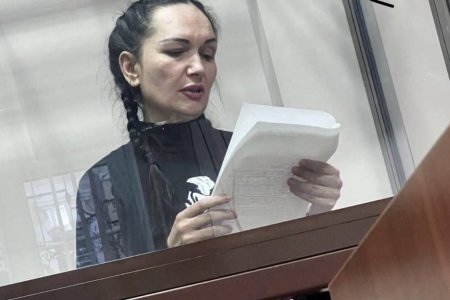
Russia’s reaction to the Agreement on establishing a Special Tribunal for the Crime of Aggression against Ukraine has demonstrated the importance of the move, for all the reservations over restrictions on accountability of Russian leader Vladimir Putin and other key figures.
The Agreement was signed in Strasbourg on 25 June 2025 by Ukraine’s President Volodymyr Zelenskyy and Secretary General of the Council of Europe, Alain Berset, and is aimed at finally establishing a method for achieving justice over the crime of aggression. As President Zelenskyy explained, “Other institutions don’t have the tools to do this. And we need to show clearly: aggression leads to punishment, and we must make it happen together.”
On 26 June, Maria Zakharova, spokesperson for Russia’s foreign ministry, delivered a statement full of bluster and threats. Moscow would not recognize the Special Tribunal, she said, and would regard all rulings issued by it to be null and void. It would, in addition, view the joining of any country to the Tribunal as “a hostile act”. She asserted that it was Moscow’s ‘principled position’ to assert that the Council of Europe does not have the authority to create criminal courts nor to define acts of aggression.
The problem here is that Russia has denied the authority of, literally, every international court which has either begun examining suits brought by Ukraine or has identified Russia’s role in crimes against Ukraine. Western media even reported in 2016 that Putin was leaving the International Criminal Court over the latter’s hard-hitting conclusions, exposing Russia’s lies about its invasion of Crimea and aggression in Donbas. The reports were misleading since Putin could only, petulantly, state that Russia, which had not joined ICC, would not do so. Russia has systematically blocked all UN investigations, either by using its power of veto, as with an investigation into the downing by a Russian BUK missile of Malaysian airliner MH17, or by refusing to provide guarantees of safety for investigators on Russian-occupied territory, as with the killing of 53 Ukrainian prisoners of war at the Russian-controlled Olenivka ‘concentration camp’.
The Russian spokesperson also endeavoured to turn the situation on its head by claiming ‘war crimes’ by Ukraine in Toretsk (Donetsk oblast), which Russia has been trying to seize for a very long time, and has largely destroyed. The list of alleged war crimes essentially replicated all those war crimes which not only Ukrainian investigators, but also the International Criminal Code and other international bodies, have found Russia to have committed. Unlike the Ukrainian and international investigations, which identify sources and explain verification methodology, Zakharova cited “dozens of witnesses” identified only by an unrecognized entity referred to as an ‘international civic tribunal’. This was, formally, set up by Russia’s proxy ‘Donetsk and Luhansk people’s republics’ in 2022, and referred to by Zakharova as “a platform for uncovering the truth which the West refuses to hear”. Its agenda is very simple – to accuse the “Kyiv regime” of war crimes, atrocities, etc., citing ‘witnesses’ whose testimony cannot be verified. In 2022, we know that Russia’s security service [FSB] took part in extracting such ‘testimony’ from Ukrainians forcibly taken to Russia from Mariupol which was under Russian siege. One such ‘witness’, looking obviously terrified, made truly bizarre claims aimed at blaming Ukrainian defenders for two of Russia’s most egregious war crimes – the bombing of a Mariupol maternity hospital on 9 March 2022, and of the Mariupol Drama Theatre which was sheltering at least a thousand civilians, mostly women, children and the elderly, on 16 March 2022.
Special Tribunal for the Crime of Aggression against Ukraine
As reported, the Tribunal is of critical importance given the lack of any mechanism at present for punishing the crime of aggression. Although this is one of the four international crimes, the International Criminal Court does not have jurisdiction to investigate it, unlike the other crimes – of genocide; war crimes and crimes against humanity.
The signing on 25 June of the Agreement was important, but largely a formality, following the announcement that such a tribunal would be created at a meeting of foreign ministers in Lviv on 8 May 2025, the 80th anniversary of victory over Nazi Germany.



